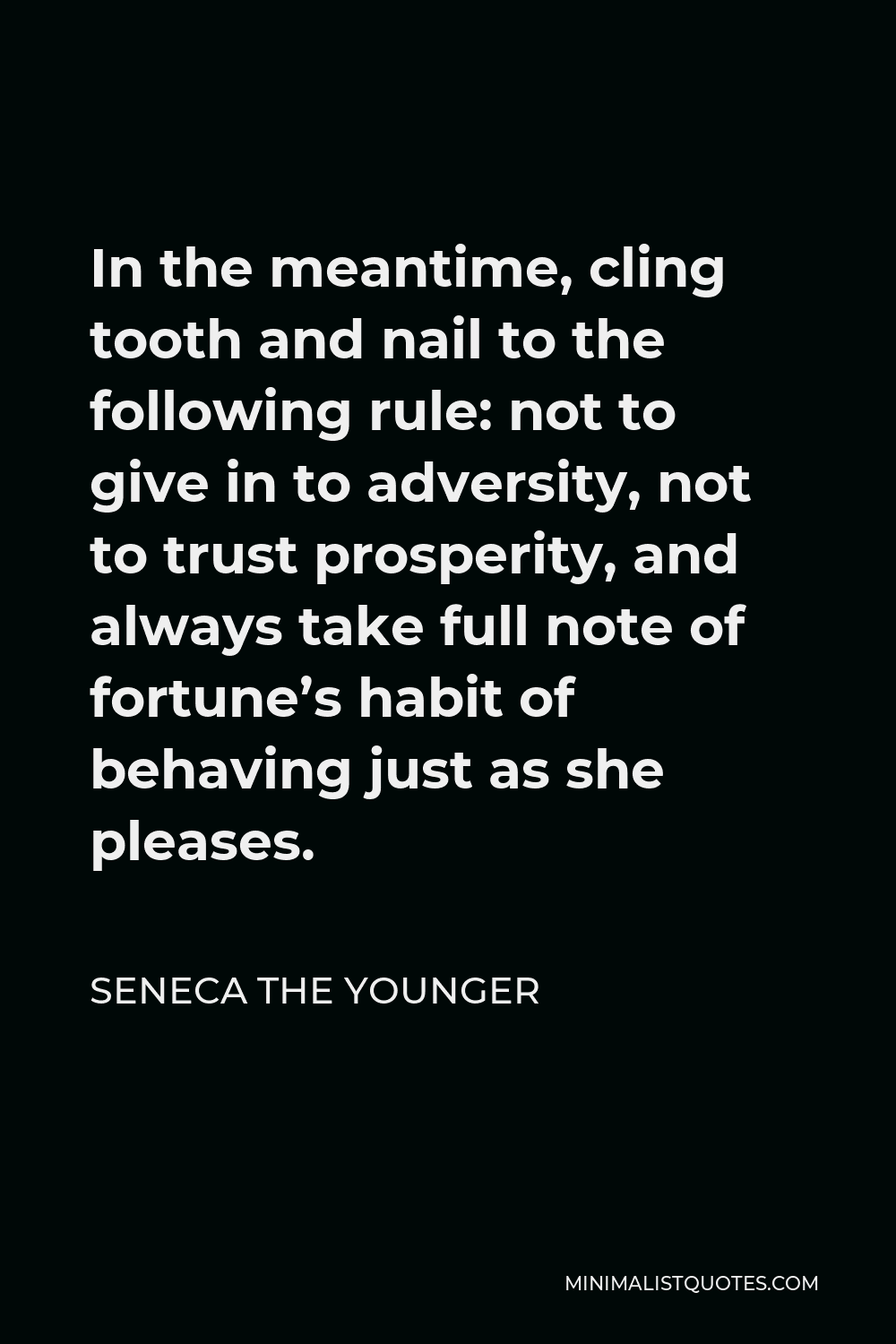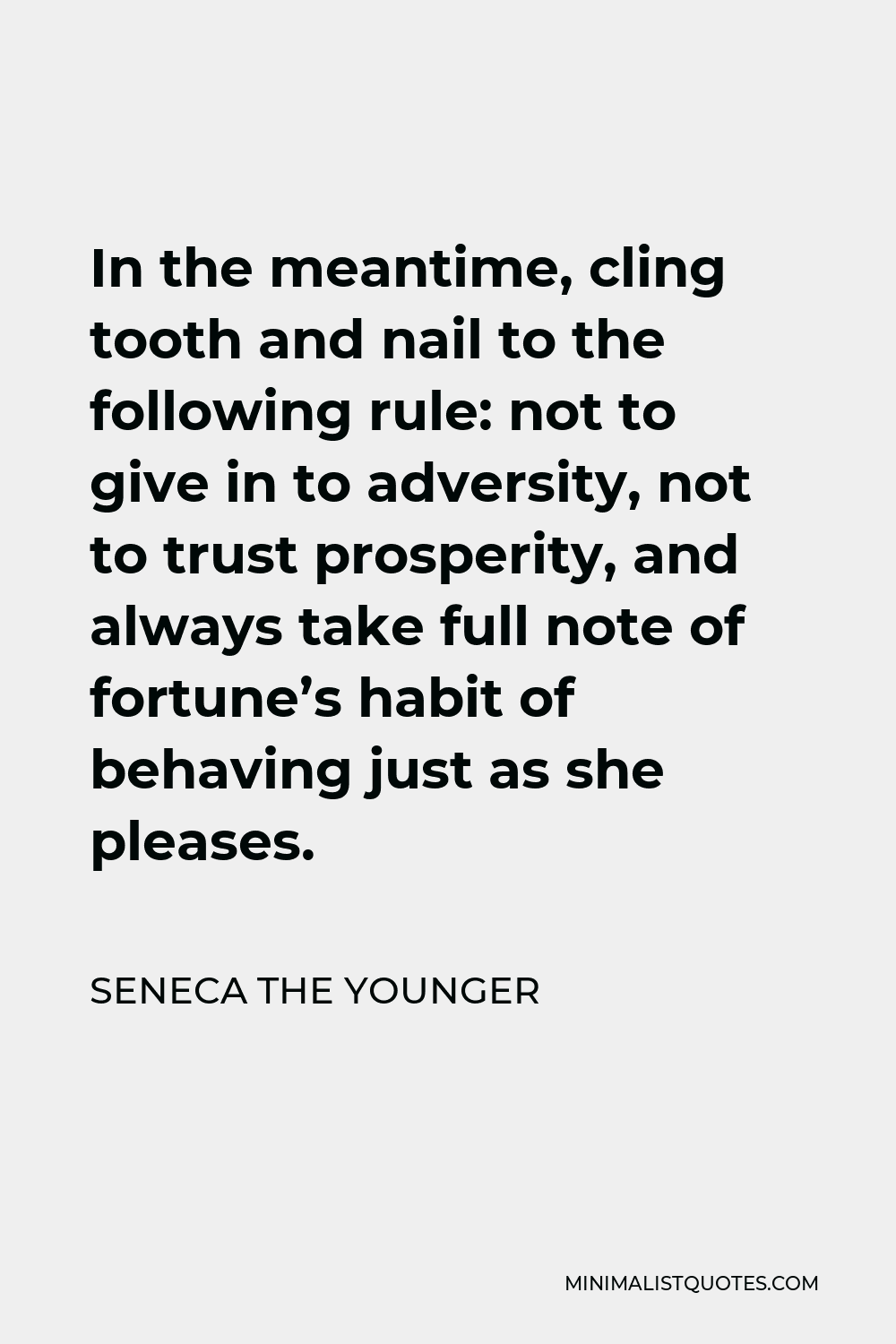He who is brave is free.
SENECA THE YOUNGERIn the meantime, cling tooth and nail to the following rule: not to give in to adversity, not to trust prosperity, and always take full note of fortune’s habit of behaving just as she pleases.
More Seneca the Younger Quotes
-






-






To the stars through difficulties.
SENECA THE YOUNGER -






The expression of truth is simplicity.
SENECA THE YOUNGER -






He robs present ills of their power who has perceived their coming beforehand.
SENECA THE YOUNGER -






To govern was to serve, not to rule.
SENECA THE YOUNGER -






When one is friend on himself, also is friend of everybody.
SENECA THE YOUNGER -






Its harder for people to seek retirement from themselves than from the law
SENECA THE YOUNGER -






Human society is like an arch, kept from falling by the mutual pressure of its parts
SENECA THE YOUNGER -






Men learn while they teach.
SENECA THE YOUNGER -






Where reason fails, time oft has worked a cure.
SENECA THE YOUNGER -






The young man must store up, the old man must use.
SENECA THE YOUNGER -






But when you are looking on anyone as a friend when you do not trust him as you trust yourself, you are making a grave mistake, and have failed to grasp sufficiently the full force of true friendship.
SENECA THE YOUNGER -






Life without literary studies is death.
SENECA THE YOUNGER -






Our (the Stoic) motto, as you know, is live according to nature.
SENECA THE YOUNGER -






We become wiser by adversity; prosperity destroys our appreciation of the right.” “True happiness is … to enjoy the present” “It is not because things are difficult that we do not dare; it is because we do not dare that they are difficult.
SENECA THE YOUNGER -







One who’s our friend is fond of us; one who’s fond of us isn’t necessarily our friend.
SENECA THE YOUNGER







